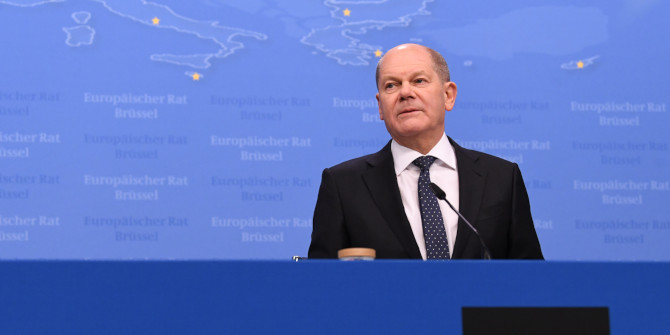Regulators are often shielded from political pressures, with decisions made on the basis of technical expertise rather than public opinion. Yet as Hanan Haber and Eva Heims explain, recent years have seen a growing trend for ‘participatory regulation’ across Europe, where citizens actively participate in the decision-making process. Drawing on a new study, they argue we are increasingly seeing a move away from regulation based on expertise to regulatory decisions that try to capture a range of different viewpoints and interests.
Participatory regulation – a practice in which regulatory agencies invite business interests, non-governmental organisations, as well as consumers and citizens, to participate in their decision-making – seems to be becoming increasingly common. Examples such as the Scottish water regulator providing customers with real influence in its review of water prices or the German network regulator organising citizens’ forums to give them a say on energy grid expansion demonstrate the development of this trend.
While participation in policy-making is clearly not a new phenomenon, citizen participation in regulatory decision-making is not only relatively new, but also puzzling because it seems to undermine one of the very cornerstones of the legitimacy of regulatory agencies. That is, that regulatory agencies are independent of political influence and make their decisions based on clear professional standards and technical expertise. If regulators make decisions based on participation and involvement of citizens or interest groups, it becomes unclear why these decisions are being made by regulators in the first place, rather than in political decision-making forums. Put simply, regulators are usually seen as professional, independent decision-makers. Why, then, have they begun consulting with the public?
In recent decades, a growing number of independent regulatory agencies have been created and tasked with protecting the public from harmful products, unfair business practices and excessively high utility prices. Initially primarily common in the US, which has a long tradition of so-called ‘independent’ regulators being in charge of such decisions, in Europe we have seen a move towards the establishment of such bodies since the 1980s. Traditionally, they were independent from party political squabbles to ensure that their decisions were based on the best available expertise, rather than with a view to winning the next election or defending business interests. By now, this type of independent regulatory agency has become a very common part of the decision-making machinery of government.

Credit: StockSnap from Pixabay
Increasingly, though, regulatory agencies seem to invite business interests, non-governmental organisations, as well as consumers and citizens, to participate in their decision-making. In a recent study, we call this phenomenon ‘participatory regulation’. The phenomenon of participatory regulation raises questions regarding how common this type of decision-making has actually become. If it has become more common, the question arises if it is more or less common across different policy sectors or countries and what can explain differences in the spread of this trend. Our findings suggest that regulatory participation may be more common in countries in which policy-making does not traditionally provide access to organised societal interests, meaning that regulators may try to compensate for this lack of access to policy-making by including more groups in their decision-making processes.
To study this, we conducted an automated text analysis of the annual reports of regulatory agencies in eleven polities from the English-speaking world and from Europe, covering eight policy sectors, including both economic and social regulation. Regulators report their activities in these reports and we searched the reports for a list of pre-defined words that relate to different types of participant groups, distinguishing between business, and consumer and citizen participation. The period we covered spanned roughly two decades of reports, from the late 1990s.
Our results show consistent growth in regulatory participation over time, with notable variation between different polities. The use of these terms is most common in EU level agencies, Australia and France, while being least common in Germany and Austria. These results support our hypothesis that the degree to which stakeholder interests are institutionalised in policy-making more widely influences the extent to which regulatory participation is adopted in a given country: the more institutionalised business and citizen interests are in policy-making (for example, through corporatist decision-making arrangements), the less pressure there is on regulators to engage directly with organised interests.
These findings matter because they demonstrate a growing phenomenon of regulators involving stakeholders and citizens in decision-making. It offers empirical evidence of a shift away from the model of strictly de-politicised, independent and professional-standard-based regulation. This means that the very nature of how regulatory policy decisions have been made and implemented in advanced economies over the past decades is changing fundamentally. We are increasingly seeing a move away from expertise-based regulation, to regulatory decisions that try to capture a range of different viewpoints and interests.
Such a shift may mean that regulation is made more legitimate in the eyes of society and more effective because it visibly takes the viewpoints of not only regulated businesses but also of citizens into account. However, this also risks a new and increased role for special interests and parochial viewpoints in regulatory decision-making, possibly side-lining the importance of expertise in highly technical policy fields.
For more information, see the authors’ accompanying paper at the Journal of European Public Policy
Note: This article gives the views of the authors, not the position of EUROPP – European Politics and Policy or the London School of Economics. Featured image by StockSnap from Pixabay





